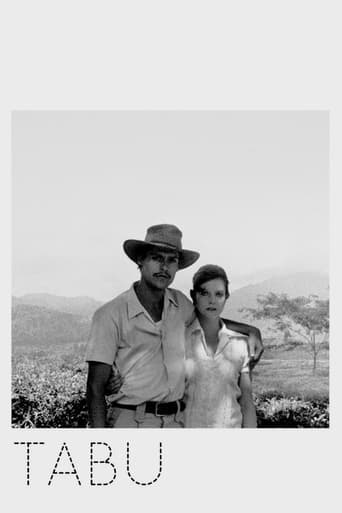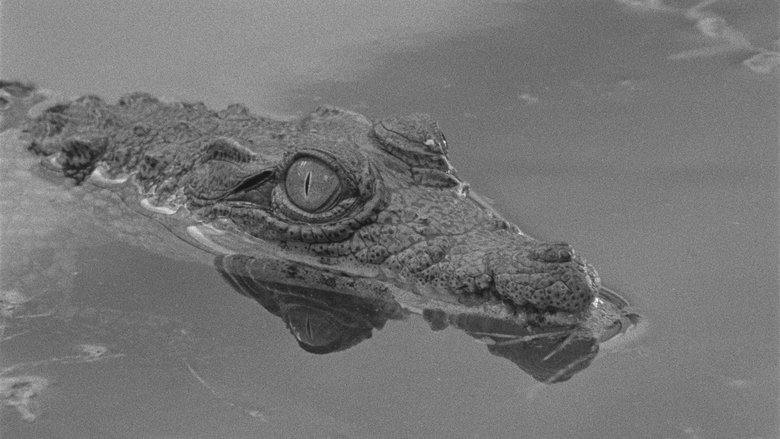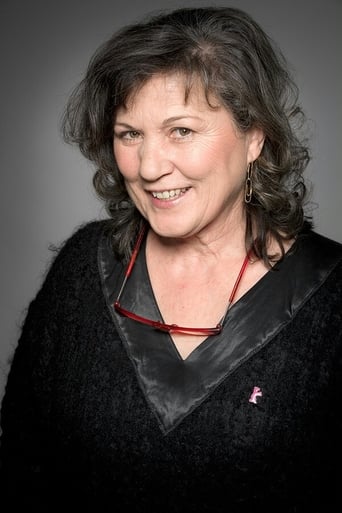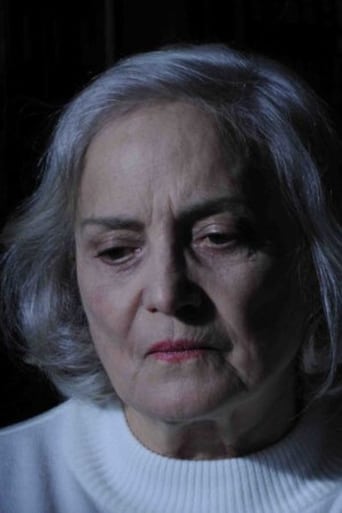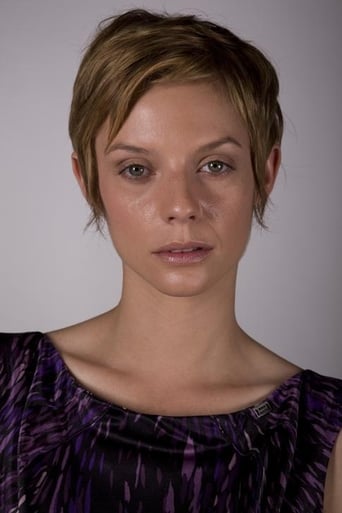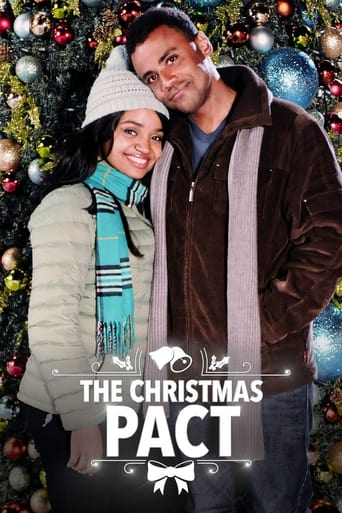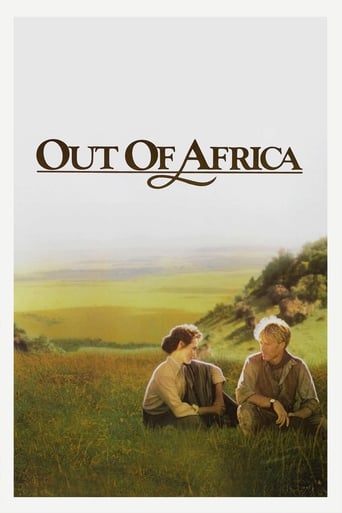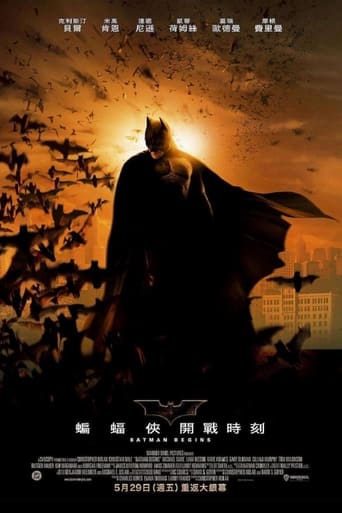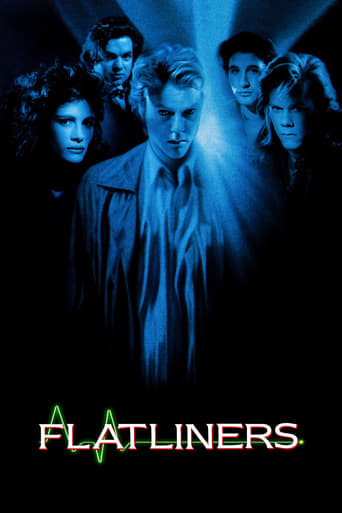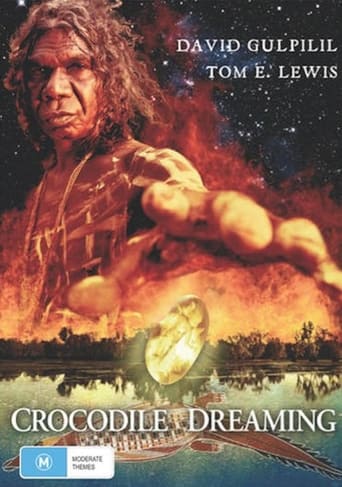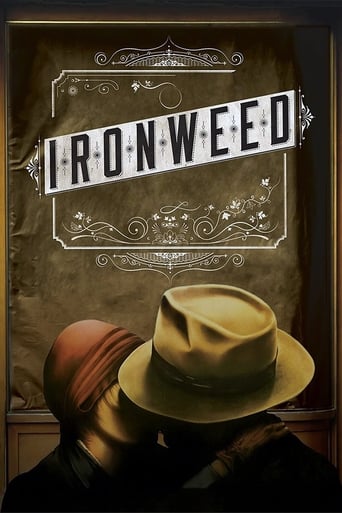Tabu (2012)
Lisbon, Portugal, 2010. Pilar, a pious woman devoted to social causes, maintains a peculiar relationship with her neighbor Aurora, a temperamental old woman obsessed with gambling who lives tormented by a mysterious past.
Watch Trailer
Free Trial Channels
Cast


Similar titles
Reviews
Lack of good storyline.
A bit overrated, but still an amazing film
I think this is a new genre that they're all sort of working their way through it and haven't got all the kinks worked out yet but it's a genre that works for me.
Worth seeing just to witness how winsome it is.
Tabu is exactly the type of poetic old-fashioned film I adore. It's a simple story told very unconventionally, with the long slow death of a character in the first half (entitled "Paradise Lost") and then the best years of her life in the second ("Paradise") to the point of where the aforementioned Paradise came to an end. The aesthetics of the film are the real highlight here and truly capture the essence of the story in a unique way. The lush texture in the rich black and white photography are a delight to watch, and recall the effects Jim Jarmusch's Dead Man's cinematography had with the ethereal, sometimes tragic and sometimes comic atmosphere it created. The timeless cinematography is also reminiscent of the 1920s studio films with manufactured exterior shots and the use of a traditional 1.37:1 ratio. There's a fascinating use of sound too, with the second half being dialogue-less, despite watching characters talk, and featuring only atmosphere sounds of the jungle. There's also a great use of a Ronettes song that I love ostensibly translated into Portuguese. Tabu is a majestic film that had a profound effect on me. It's an interesting take on the long term consequence of a 'taboo' (in this case, adultery). One of the best of the year.9/10
The entire movie delivers a constant flat beat or the pulse of a corpse is an even better comparison. There is no emotional attachment to any of the characters, no suspense, no drama, no climax, no pay off and the dialogue is largely bland and generic. Akin to watching a bunch of retirees in some old nursing home reminiscing to their grandchildren about their past lives which no one really wants to hear about. I've seen a lot of ordinary movies in my time, but this has to be in the top 5 of the worst. I was more impressed with my level of patience in sitting though the entire thing than with anything that was appeasing about the movie itself.
Sometimes I think critics include a movie on their top 10 lists simply because it's the last one they remember seeing. That might be the case with "Tabu," which showed up on more than one list, but isn't nearly as interesting a film as it pretends to be, or as the critics who rave about it seem to think it is."Tabu" is full of auteur tricks and cinephile homages. It borrows its name from an obscure FW Murnau silent, it's filmed in black and white and utilizes two different film speeds, and the entire second half has no dialog, only voice-over. But underneath all those tricks is a surprising conventional film. Well, more precisely, two films.After a brief interlude involving an intrepid explorer, a ghost and a crocodile, Part 1 begins, which is titled "Lost Paradise." It's about three women living in present-day Lisbon -- Pilar, her neighbor Aurora, and Aurora's African caretaker, Santa. Aurora is wildly dramatic, and probably senile. She sneaks away from Santa to gamble away any money she comes across. She corners Pilar one day and shares her fears that Santa is a servant of the devil who has imprisoned her and cast a curse upon them all. Of course the truth is much less dramatic, but Pilar still feels obligated to try and do something for her aging neighbor. And when her health takes a turn for the worse and Aurora asks her only friend to track down a man she once knew, of course Pilar obliges her.The man's name is Ventura, and he's not very hard to track down. The second half of the film, titled "Paradise," is his recounting of his relationship with Aurora; the entire thing is narrated by him but acted out like something from "Unsolved Mysteries" -- the actors on the screen speak but we never hear their words, only ambient sounds around them. It is an interesting way to portray a memory, to keep us aware that this isn't happening, it's being remembered. But really - an hour of flashback? The contrivance grows old fast, and we never transition out of it into more immediate and direct storytelling.The memory takes place in Mozambique, back when it was a Portuguese colony. Aurora is the beautiful bored wife of a rich merchant, and Ventura is a rake and a roustabout. He looks an awful lot like pirate Johnny Depp in "Chocolat." Of course this is the kind of guy you should never trust around your women, but Aurora's husband is out of town quite a bit, and there's the matter of a constantly escaping pet crocodile. Pretty soon they are in bed (Aurora and Ventura, not the crocodile) and not long after that they are in love. But she is pregnant, and the baby is her husband's, not her lover's. This is a love story that can only end in tragedy. (Which, of course, we already knew, because this is all being tragically remembered, mind you.)So essentially, we have two movies -- the two parts are too stylistically different to be considered anything else. The first half is a quiet, borderline boring Euroflick about aging and loneliness. It has a vaguely Almodovarian feel, though there are no transvestites or ghosts, only a cadre of middle-aged women. The second half is more classical, and also more formulaic, reminiscent of sweeping, exotic romances from the golden age of Hollywood without ever approaching that kind of grandeur. (Indeed, it uses pretense to steer clear of that kind of grandeur and emotional intensity. Of it was as overheated and melodramatic as the movies it's emulating, it would probably be unbearably campy.) Both halves are decently made short films -- probably better than average, but I think for "Tabu" to really work, the two halves need to connect on a deeper level than the plot. And that never materializes. I want the two halves to comment on each other, to enrich each other in some way, but it's just not there. So really, all it amounts to is, "hey, you know that crazy old lady next door? She's got a quite a story, set in Africa, about infidelity and murder and crocodiles. Imagine that!""In all my films there is an urge for fiction," Mr. Gomes said in an interview with Slate. "There is a first part that begs for another film to appear, and it does because of our common desire." I'd say he's accomplished about half of that goal, twice over. While watching "Tabu," I kept waiting for another film to appear, a more interesting, more subtle and complex, more deeply layered film. But it never does. So I guess I'll move on to the next thing, and keep looking.
What would "Out of Africa" if shot by Wes Anderson, along with a bipartite alibi borrowed after Murnau's "Taboo", look like? It would like this film.The quirkiness of the band intruding cinematically here and there on the second part, along with the use of music or the charming, fleeting delineation of the animal profiles on the clouds, testify to Gomes following the steps of Anderson; to what purpose or tenor, apart from some kind of academic camp ("her harmless, soft bipolar disorder" snaps when heard), or the occasional charm (I especially, really liked and appreciated the "monkey business" dream early on the film but the film fails to deliver after the double-entendres implied there), I can not tell. It just feels random rather improvisatory and the cinematography, its posing and sequences, if it scores once, then misfires thrice.I am also someone that finds voice-over the easy way out, unless when used in manner like say Godard or Marker does, and that means part of the stroke, rather than part of a misty crutch. (When at the end we learn that there in Mario's murder lies the beginning of the war, the film, being overall finicky, cannot have this as camp or sly, but is actually rather lame - those who swoon in a post-post-colonialist way or whatever are out of their depths.)Carlotto Cotta was by far the most powerful presence in the film his cheeky, soulful and sexy gaze anchor the film whenever he is on screen, yet he can not possibly structure the affair, a really missed one.

